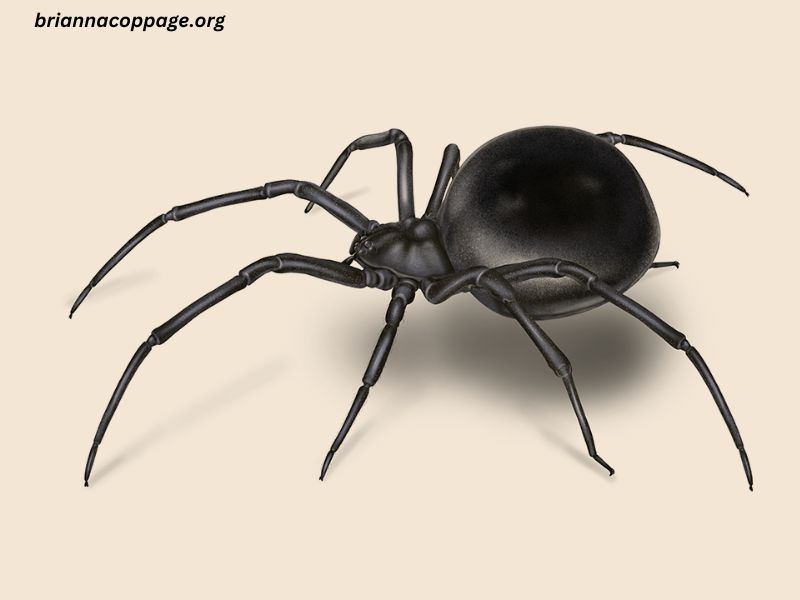Spiders are some of the most misunderstood creatures in the natural world. Among them, the Black Widow spider (Latrodectus mactans) is often feared and associated with danger due to its venomous reputation. If you’ve encountered a Black Widow in or around your home, you may have asked yourself the question, “Should I kill a Black Widow spider?” This article aims to explore whether killing a Black Widow is necessary, the potential risks, and alternative methods for dealing with these arachnids.
What Is a Black Widow Spider?
Black Widow spiders are part of the Theridiidae family and are known for their distinct appearance. They are typically black, with a characteristic red hourglass marking on the underside of their abdomen, though some variations may be brown or gray. They are primarily nocturnal creatures that build irregular, tangled webs in secluded areas, such as sheds, garages, basements, and even outside in shrubs and rock piles.
These spiders get their name from a common myth that the females eat their mates after mating. While this may happen in some cases, it is not a universal behavior. The fear surrounding Black Widows mainly stems from their venom, which is potent and can pose a threat to humans, especially in certain circumstances.
The Danger of Black Widow Spiders
Black Widow spiders are venomous, and their bite can cause serious health problems. However, it is important to note that these spiders are not aggressive and will usually bite humans only in self-defense, such as when they are accidentally disturbed or trapped. The venom of a Black Widow contains a neurotoxin called latrotoxin, which affects the nervous system and can lead to severe pain and other symptoms.
Symptoms of a Black Widow Bite
The symptoms of a Black Widow bite can vary depending on the individual’s health, the size of the bite, and the amount of venom injected. Typical symptoms include:
- Sharp pain at the site of the bite
- Muscle pain and spasms, particularly in the abdomen, chest, or back
- Sweating, nausea, and vomiting
- Headache and dizziness
- Elevated blood pressure and rapid heart rate
- In rare cases, difficulty breathing and severe abdominal pain may occur
While these symptoms are generally not fatal, they can be quite distressing, especially for vulnerable individuals like young children, the elderly, and those with compromised immune systems. Medical attention should be sought immediately after a Black Widow bite, as antivenom may be required in more severe cases.
Who Is Most at Risk?
While the majority of bites from Black Widow spiders are not life-threatening, certain groups of people are more at risk. These include:
- Young children and the elderly: Due to their smaller body size, they are more susceptible to the effects of venom.
- Pregnant women: Hormonal changes can increase the severity of the bite’s effects.
- People with weakened immune systems: Individuals with compromised immune systems may experience more severe symptoms.
For most healthy adults, a bite from a Black Widow may cause temporary pain and discomfort but is rarely fatal.
Should I Kill a Black Widow Spider?
The question, “Should I kill a Black Widow spider?” is not as simple as it may seem. There are several factors to consider, including the risks, the ethics of killing, and alternative solutions for handling the situation.
1. Risk Assessment
The most significant reason people may choose to kill a Black Widow spider is the perceived risk of being bitten. However, it’s essential to understand that these spiders are not aggressive hunters. They are more likely to avoid humans unless they feel threatened. Black Widows typically only bite in self-defense, such as if they are trapped or accidentally disturbed.
In general, Black Widow spiders prefer to live in quiet, secluded places, which means you are not likely to encounter them frequently. If you do spot a Black Widow in a space where it might pose a threat (such as in your home or near an area where children or pets frequent), it’s worth considering your level of exposure.
2. Alternatives to Killing
Rather than resorting to killing the spider, there are various non-lethal methods you can use to remove it from your home. These options ensure that the spider is safely relocated without unnecessary harm. Here are some alternatives:
- Capture and Relocate: If you spot a Black Widow spider, you can use a glass or cup to trap it and then slide a piece of paper underneath to lift it. Once captured, take the spider outside and release it far away from your home.
- Seal Entry Points: One of the best ways to prevent Black Widows from entering your home is to make sure there are no gaps in doors, windows, or walls. Proper sealing of these entry points will reduce the likelihood of encountering a Black Widow inside your home.
- Clean Your Home Regularly: Black Widows tend to favor dusty, dark corners and unused areas. Regular cleaning of your home, including sweeping and vacuuming, can help remove any spiders that might have taken refuge.
- Use Essential Oils: Some essential oils, such as peppermint or citronella, are known to repel spiders. Consider using these oils in a diffuser or diluted in water as a natural deterrent.
3. Ethical Considerations
From an ethical standpoint, many people choose not to kill spiders unless absolutely necessary. Spiders, including Black Widows, play an essential role in the ecosystem by controlling insect populations. Killing them could disrupt this balance, leading to an increase in other pest populations.
Additionally, as creatures that are primarily defensive, Black Widows are unlikely to bite unless they feel threatened. Therefore, many people prefer non-lethal methods of handling the situation, recognizing that the spider is just trying to survive, much like other animals in their environment.
When Is Killing a Black Widow Necessary?
There are certain situations where killing a Black Widow spider might be necessary, such as:
- Immediate Danger to Humans or Pets: If the Black Widow spider is found in an area where people or pets are likely to be harmed, such as near a play area or in a high-traffic zone, immediate action may be needed.
- Inability to Safely Relocate: In some cases, a Black Widow may be in a place that makes relocation difficult, such as deep within the walls of your home or in an area you cannot easily access. In these situations, contacting a pest control professional may be the best option.
- Health Concerns: If you live in a household with people who are particularly vulnerable to the effects of venom, such as children or those with medical conditions, it may be worth eradicating the spider to avoid any potential danger.
Professional Help: When to Call an Exterminator
If you are dealing with a significant infestation of Black Widows or have encountered one in an area that is difficult to address on your own, it may be wise to contact a pest control professional. An exterminator can assess the situation and provide appropriate measures for removal, either by using traps, deterrents, or professional-grade insecticides.
A pest control expert can also help identify any potential entry points where Black Widows are coming into your home, providing long-term solutions to keep them out.
Conclusion
In conclusion, whether or not you should kill a Black Widow spider depends on various factors, including the risk it poses to your household, the availability of alternative solutions, and your personal ethical stance. While Black Widows do carry venomous potential, they are not typically aggressive and will usually avoid human interaction unless threatened. Rather than resorting to killing, consider non-lethal methods such as capture and relocation, sealing entry points, or using repellents.
Ultimately, the decision to kill a Black Widow should be made carefully, weighing the risks against more humane alternatives. If you are unsure or if the situation involves multiple spiders or an infestation, it’s best to contact a professional pest control service for safe and effective management.
Remember, spiders are an essential part of the ecosystem, and understanding their behavior and role can help you coexist with them safely and responsibly.






